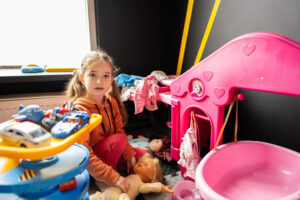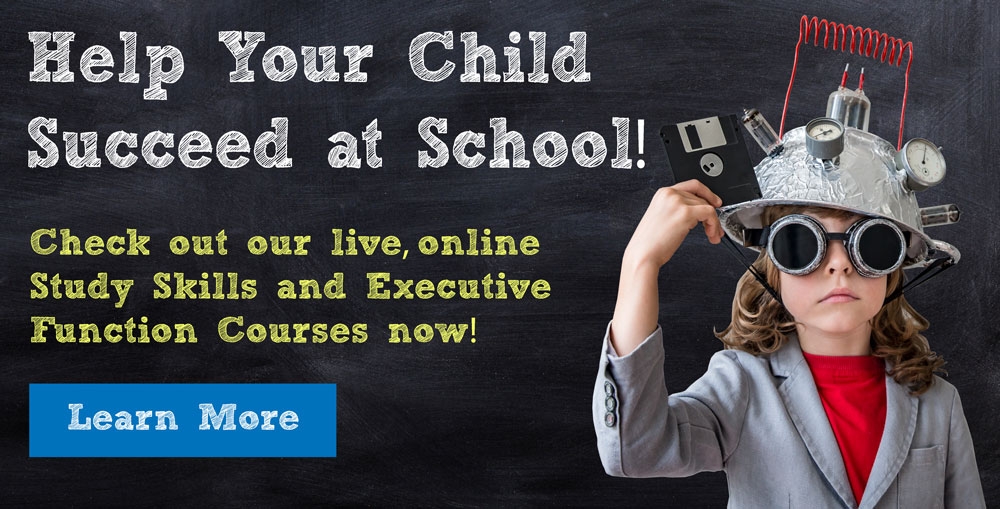The recent shift in daily life has presented unique challenges and opportunities for parents and their children, particularly those with attention and focus-related difficulties. With these changes there exists a silver lining: the chance to enhance your child’s organizational abilities. As routines transform, it becomes increasingly important to create structured habits and self-management skills in our young ones. Developing these skills not only helps children adapt to the present circumstances but also lays a foundation for future success in managing their responsibilities.
Parents can spot signs of organizational struggles in their children through several indicators: consistently losing things, a messy living area, a backpack that has no organization, or a pattern of incomplete assignments and missed appointments. These suggest that a child may be overwhelmed by the task of managing their possessions and commitments. It’s important for parents to intervene with support and strategies to help their children develop effective organizational habits. By guiding them through the process of creating systems and routines, parents can help alleviate the stress associated with disorganization and equip their children with the skills necessary to manage their responsibilities more independently. This proactive involvement is key to guiding a child’s ability to navigate life’s demands with confidence and competence.

At South County Child and Family Consultants, our team of skilled psychologists recognizes the hurdles that can impede a child’s organizational abilities, particularly for those with attention and focus-related challenges. We understand the essential role that parents play in guiding their children to overcome these obstacles and develop structured habits that are crucial for their growth. Below is a selected collection of resources, for parents with children that are currently struggling with executive functions and organization.
1. Get Organized Without Losing It by Janet Fox (2017)
This is a practical guide designed to help middle-schoolers develop essential organizational skills. The book provides a humorous yet informative approach to tackling common issues such as managing homework, keeping a tidy locker, and creating effective study habits. Through step-by-step instructions, checklists, and tips, Fox empowers childre to take control of their clutter and their time, making school life more manageable and less stressful.
2. Help Your Child Get Organized by KidsHealth
The article is a resource for parents outlining various strategies to help children improve their organizational skills. It details a step-by-step method that can be applied to a wide range of tasks, emphasizing the importance of consistent practice and parental guidance in helping kids develop the ability to organize, focus, and complete their work independently. Through these strategies, the article aims to foster children’s self-confidence and effectiveness in handling their responsibilities.
3. The Messy Student’s Guide to Order: ADHD Organizing Tips by ADDitude Magazine
The article offers insights into why children with ADHD struggle with organization and how this is linked to their executive function capabilities. It provides a general overview of strategies and tools that can help these children both at school and at home, emphasizing the importance of collaboration between teachers, parents, and the children themselves to develop effective organizational habits. The article aims to guide adults in supporting children with ADHD to overcome organizational challenges and succeed in their academic and personal lives.
4. Helping Kids Get Organized by Kurtz Psychology
The article serves as a resource for caregivers and teachers, focusing on the importance of teaching organizational skills to children, particularly those with executive functioning difficulties. It emphasizes the role of adults in guiding children to develop these essential life skills and highlights the benefits these skills provide for academic success and everyday life. The piece suggests that with the right support and learning environment, children can acquire and improve their ability to organize, plan, and manage time effectively.
As we continually work to support and improve the lives of children with executive function challenges, we invite you to visit the South County Child and Family Consultants website regularly. Our dedicated team is always updating our resources with the latest information and strategies to aid in the development of your child’s organizational skills and overall executive functioning.
Receive online class information and helpful tips from Dr. Randy Kulman's LearningWorks for Kids |




